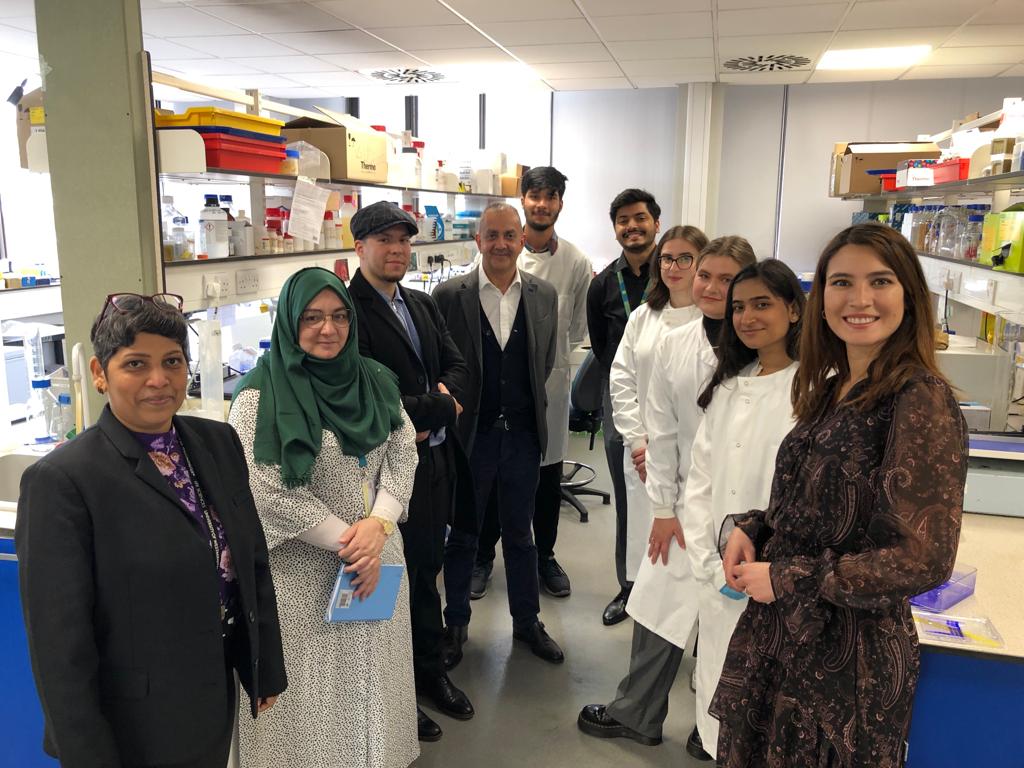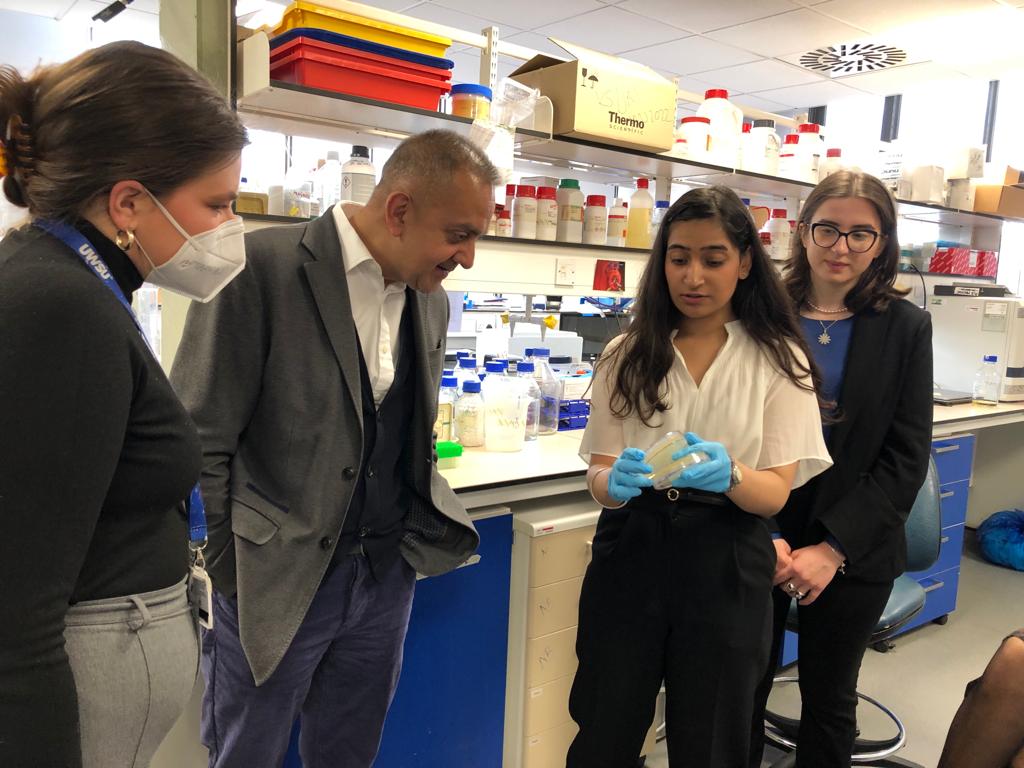Discover recover – Summer research internship programme, 2022
“Discover to Recover”,funded by philanthropic Westminster alumnus Raj Sitlani, provided three undergraduate interns placement within the Genome Engineering Laboratory at the University of Westminster and the opportunity to work alongside research scientists as they aimed to create novel CRISPR-based diagnostic platforms for infectious and non-infectious diseases.
Students shared positive experiences on the internship. Jessica Pantuczek, a BSc in Biomedical Sciences student, said “I have recently been offered a place at an MSc course and I started feeling a bit anxious about my lab skills and the ability to run a research project independently, and the idea of spending three months preceding my new course start date surrounded by great researchers and working on my own project was fascinating. I have become confident in numerous crucial laboratory skills such as DNA extraction, Western blot, colony PCR and DNA mutagenesis. I am confident that this time and effort have opened many doors and prepared me for future opportunities and challenges at my master’s degree in Imperial college, London. Three months may seem like a short time; however, I know that it has shaped me as a scientist and encouraged me to pursue my dream. Now, at the end of the programme, I am incredibly grateful to be chosen for the first edition of this wonderful project, which will no doubt change a life of many students in the future and open them to opportunities they would never have expected.”
The programme allowed students to gain hands on experience in the lab and enabled them to develop and hone not just topic specific scientific skills, but also their transferable skills. Mariam Robakidze, currently pursuing a BSc in Biomedical Sciences, who worked closely with Dr Kalpana Surendranath said, “I felt scared and doubtful about my abilities. I was not confident enough to know if I would have been able to work fully independently. Yet, in a three-month period I have gained variety of scientific skills and life lessons which helped to unravel my strengths and weakness. As one might expect we have had failures in our experiments, yet, having an ambitious goal and working towards to achieve them, helped to develop resilience and patience to keep going. As our supervisor Dr Kalpana Surendranath told us from the very beginning of the internship, research requires to repeat the searching process. Therefore, many successful and unsuccessful experiments throughout these three months gave me tremendous number of scientific skills, confidence, and resilience. Most importantly, I now am able to trust myself and the process itself.”
Dr John Murphy (second from left), Raj Sitlani (second from right), and Dr Kalpana Surendranath (on the right) with other members of the Genome Engineering Lab
Dr Kalpana Surendranath and Dr John Murphy, co-leaders of the Genome Engineering Laboratory, stated that the programme aimed to create a student community of belonging and commitment to excellence through the development of research-led student initiatives “Students trained by us in the past have achieved scholarships and positions in top universities and companies.”
Jaskirat Kaur, a BSc in Biochemistry student, said “My journey in the Genome engineering laboratory at University of Westminster has been an incredible one. Towards the end of the internship, I also gained skills to maintain and transform human cancer cell lines. The tremendous research experience and lab practice I gained during this internship has provided me with an amazing skill set to boost my journey as a capable researcher. Owing to the training and skills I acquired in the Genome engineering laboratory, I feel so much more confident to start my MRes in Drug, Discovery and Development at Imperial College, London this year.”
Medix Biochemica – a vertically integrated research internship 2024

3 students from Gene Editors of the Future have been offered internship with MedixBiochemica, a global leader in diagnostics. Harshana Chaurasia the MSc Applied Biotechnology student is joined by her fellow students from the gene editors programme Aya Hijazi and Magdalena Ruiz Perez from the BSc Biomedical Sciences course. The students will specifically work on applications of HIDI polymerases in assessing editing efficiency in CRISPR-edited populations, using a limiting number of cells for gene expression analysis, and detecting mutations in cancer hotspots.
About the internship Harshana Chaurasia said: “An international internship at MedixBiochemica is an exciting milestone in my journey as a member of the Gene Editors of the Future. The opportunity to design experiments, work with innovative materials, validate results and present findings is extremely valuable.”
Magdalena Ruiz Perez said: “This internship is a significant step towards my research and academic goals. I am excited to collaborate internationally with MedixBiochemica, representing Gene Editors of the Future and the University of Westminster. This hands-on experience will enhance my employability and support my ambition to become a data scientist. I look forward to the growth and learning this role will provide.”
Aya Hijazi added: “As an undergraduate student, the opportunity to intern internationally for MedixBiochemica allows me to bridge the gap between theory and practice through collaboration with industry experts. This experience will enhance my degree and future ambitions. I am proud to represent the University of Westminster and the Gene Editors of the Future programme. I look forward to developing skills to foster my growth as a scientist.” The students’ cancer research and participation in an international internship directly contribute to the United Nations Sustainable Development Goal (SDG) 3: Good Health and Wellbeing and 8: Decent Work and Economic Growth. Since 2019, the University of Westminster has used the SDGs holistically to frame strategic decisions to help students and colleagues fulfill their potential and contribute to a more sustainable, equitable, and healthier society.




